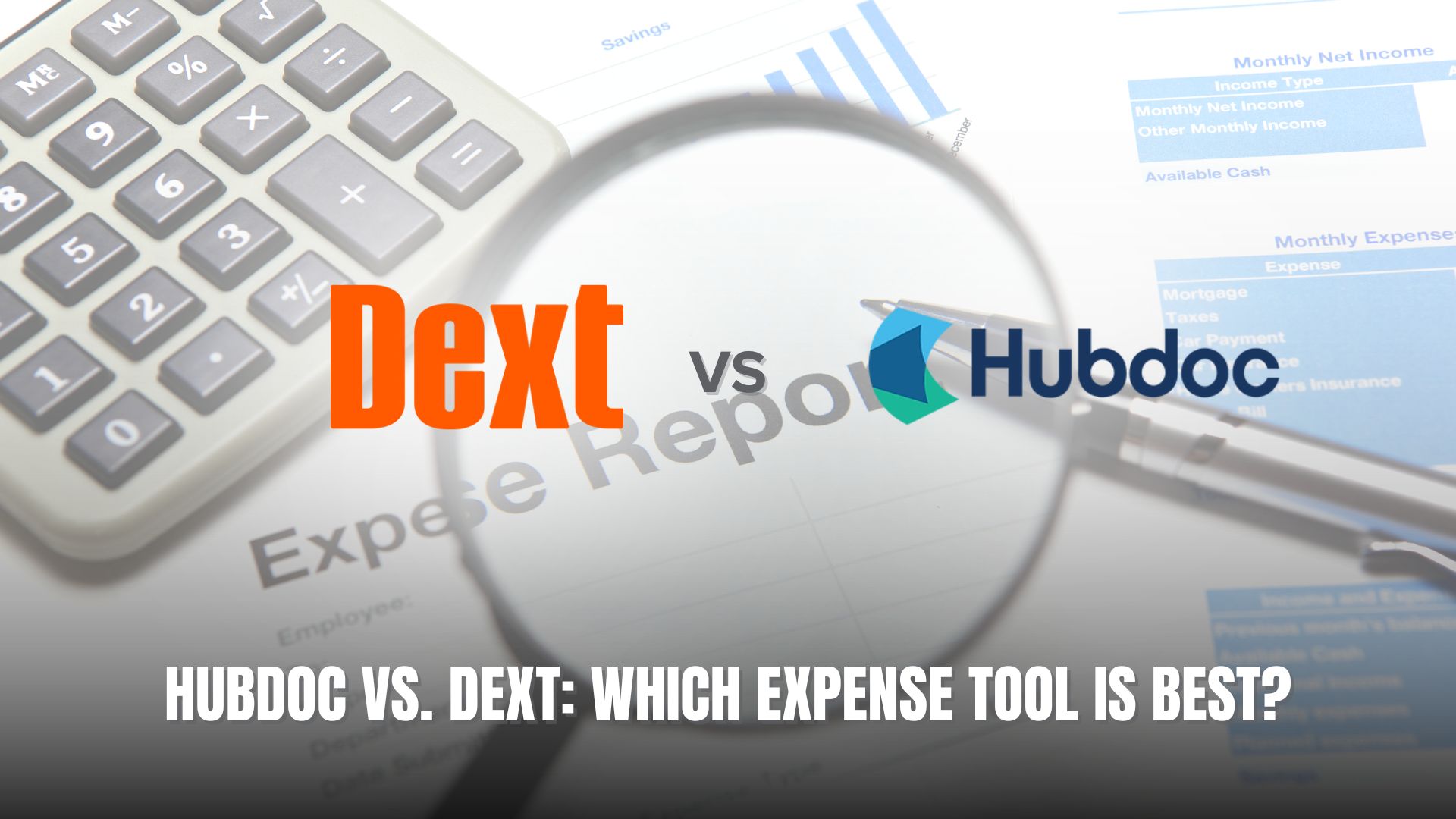Hubdoc vs. Dext: Which Expense Tool Is Best?
- Expense Management Software Credit Cards Investing Business Solutions


Managing expenses effectively is crucial for businesses and accounting professionals. Two popular tools, Hubdoc and Dext, offer powerful solutions for streamlining expense management. But how do they compare? In this comprehensive article, we’ll break down the features, pricing, and user reviews of Hubdoc and Dext to help you determine which tool is best for your needs.
What Is Hubdoc?
Hubdoc is a document collection and management tool that simplifies the process of storing and organizing financial documents. It integrates seamlessly with major accounting software like Xero and QuickBooks, making it an excellent choice for automating manual tasks.
Key Features of Hubdoc:
- Document Collection: Automatically fetches receipts, invoices, and statements from various sources.
- OCR Technology: Extracts key data from uploaded documents for efficient processing.
- Integration with Accounting Software: Syncs seamlessly with Xero, QuickBooks, and more.
- Cloud Storage: Provides secure access to financial documents anytime, anywhere.
- Expense Categorization: Simplifies reporting and tax preparation.
What Is Dext?
Dext is an advanced expense management tool that leverages AI to automate bookkeeping processes. Unlike Hubdoc, which focuses primarily on document collection, Dext Prepare and Dext Precision offer robust features for tracking expenses, analyzing data, and gaining actionable insights. While Dext is not a full accounting software, it complements platforms like Xero and QuickBooks to streamline workflows.
Key Features of Dext:
- AI-Driven Data Capture: Automatically extracts and processes data from receipts and invoices.
- Real-Time Financial Insights: Provides analytics to improve decision-making.
- Multi-Platform Integration: Works with QuickBooks, Xero, Sage, and more.
- Error Detection: Identifies inconsistencies in financial data using Dext Precision.
- Scalability: Tailored solutions for freelancers, small businesses, and large firms.
Learn more about Dext Prepare and Dext Precision.
Hubdoc vs. Dext: Feature Comparison
1. Automation and AI
- Hubdoc: Focuses on automating document collection and categorization.
- Dext: Offers AI-powered automation for data capture, categorization, and analytics.
2. Integration
- Both tools integrate with popular accounting platforms like Xero and QuickBooks.
- Dext supports additional integrations, including Sage, making it more versatile.
3. Advanced Capabilities
- Hubdoc: Provides basic features for document management.
- Dext: Includes advanced tools like Dext Precision for error detection and reporting.
4. User Experience
- Hubdoc: Easy to use but limited in functionality.
- Dext: User-friendly interface with advanced features for detailed financial management.
Compare Dext pricing and features.
Pricing: Hubdoc vs. Dext
Hubdoc Pricing
Hubdoc is often bundled with Xero or QuickBooks Online subscriptions. It offers basic features at an affordable price, making it ideal for small businesses and freelancers.
Dext Pricing
Dext provides multiple pricing plans tailored to different needs:
- Dext Prepare: Focused on expense tracking and bookkeeping.
- Dext Precision: Advanced analytics and error detection for accountants.
Hubdoc vs. Dext: User Reviews
Hubdoc
Pros: Affordable, integrates well with Xero and QuickBooks, ideal for basic tasks.
Cons: Limited advanced features and scalability.
Dext
Pros: Comprehensive automation, AI-driven insights, suitable for growing businesses.
Cons: Higher pricing compared to Hubdoc.
Which Expense Tool Is Right for You?
Choosing between Hubdoc and Dext depends on your specific needs:
- Choose Hubdoc if you’re a freelancer or small business looking for basic document management and affordable pricing.
- Choose Dext if you need advanced features like AI-powered automation, financial insights, and error detection.
Explore Dext alternatives here.
Relevant SaaS Products for Expense Management
If you’re considering Hubdoc or Dext, you might also want to explore these related SaaS tools:
- QuickBooks Online – Comprehensive accounting software for small businesses.
- Xero – Cloud-based accounting platform for managing finances.
- Expensify – Ideal for tracking and managing employee expenses.
- FreshBooks – Simplifies invoicing and expense tracking for freelancers.
- AutoEntry – Automates data entry for receipts and invoices.
- Zoho Books – Affordable end-to-end accounting solution.
- Bill.com – Streamlines payment workflows.
- Wave Accounting – Free accounting software for startups.
- Receipt Bank (Dext Prepare) – Focused on automated expense tracking.
- Sage Business Cloud Accounting – Offers detailed financial analysis.
Explore these tools and find exclusive deals.
Both Hubdoc and Dext offer excellent solutions for managing expenses, but they serve different purposes. While Hubdoc is a great option for basic document collection and categorization, Dext provides advanced features powered by AI, making it ideal for businesses looking to scale and optimize their workflows.
Learn more about Dext today to see how it can transform your expense management processes.
How Subscribed.FYI Can Help
Subscribed.FYI is your go-to platform for comparing and managing SaaS tools like Hubdoc and Dext. It offers in-depth insights, user reviews, and exclusive deals to help businesses make smarter decisions.
By visiting the Subscribed.FYI Deals section, you can unlock significant savings on tools like Dext and Hubdoc, streamlining your subscription management and reducing costs. Whether you’re deciding between expense tools or building a comprehensive SaaS stack, Subscribed.FYI makes the process effortless.
Relevant Links
- Dext Main Page
- Dext Deals
- Subscribed.FYI
- Subscribed.FYI Deals
- Hubdoc
- QuickBooks Online
- Xero
- Expensify
- FreshBooks
- AutoEntry
- Zoho Books
- Bill.com
- Wave Accounting
- Sage Business Cloud Accounting








